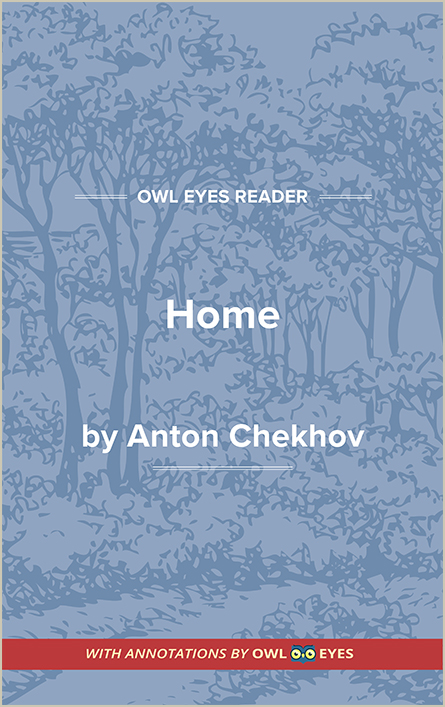Analysis Pages
Quote Analysis in Home
Quote Analysis Examples in Home:
Text of the Story
🔒"Like most people engaged in practical affairs, he did not know a single poem by heart, and could not remember a single fairy tale, so he had to improvise...." See in text (Text of the Story)
"That's why no one can take the place of a mother in bringing up a child, because she can feel, cry, and laugh together with the child. One can do nothing by logic and morality. What more shall I say to him? What?"..." See in text (Text of the Story)
"Death carries mothers and uncles off to the other world, while their children and violins remain upon the earth...." See in text (Text of the Story)
"The living organism has the power of rapidly adapting itself, growing accustomed and inured to any atmosphere whatever, otherwise man would be bound to feel at every moment what an irrational basis there often is underlying his rational activity, and how little of established truth and certainty there is even in work so responsible and so terrible in its effects as that of the teacher, of the lawyer, of the writer. . . ...." See in text (Text of the Story)
"This was probably a law of social life: the less an evil was understood, the more fiercely and coarsely it was attacked...." See in text (Text of the Story)
"Even very intelligent people did not scruple to wage war on a vice which they did not understand...." See in text (Text of the Story)

